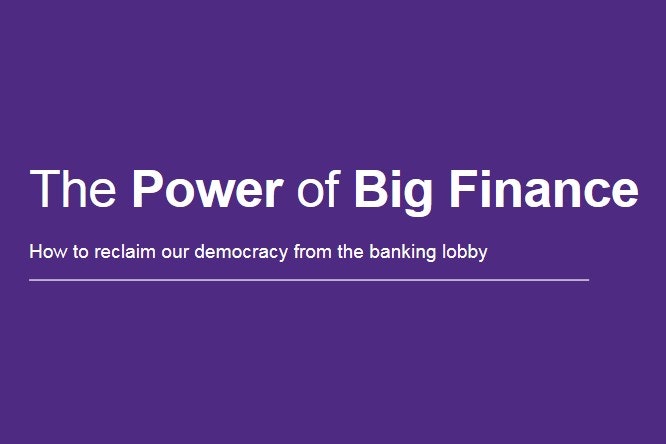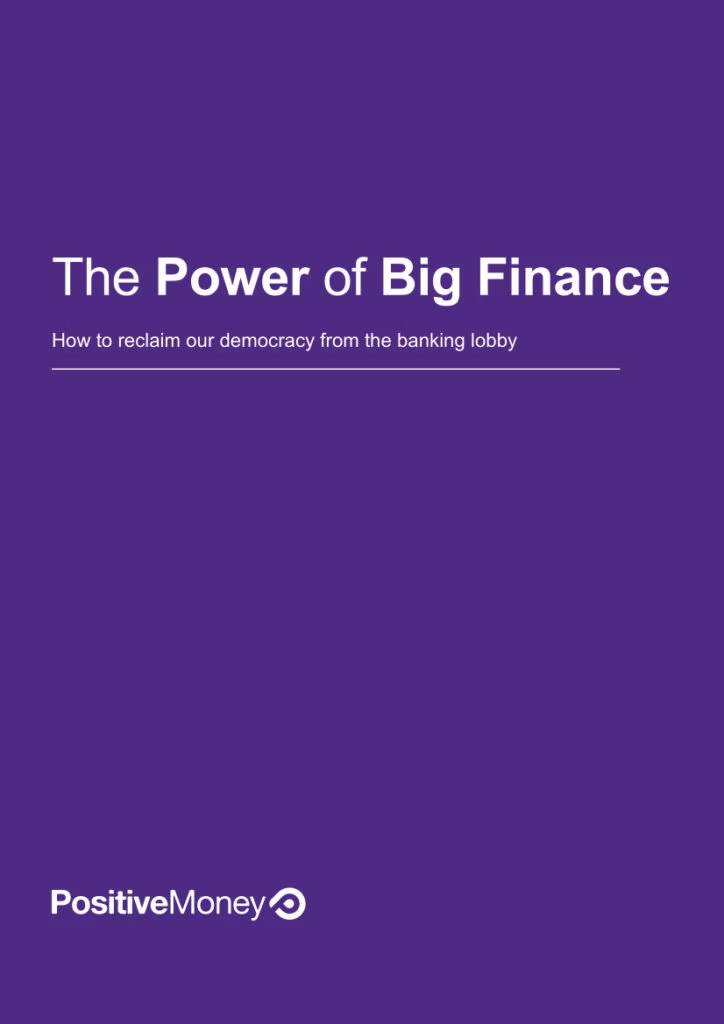The Power of Big Finance
For decades, economic policymaking has fuelled the growth of the City of London while neglecting other regions of the country and sectors of the economy.

Published June 2022
For decades, economic policymaking has fuelled the growth of the City of London while neglecting other regions of the country and sectors of the economy. This focus on finance is maintained by the sector’s political power, which exerts a huge influence over the policymakers who make the rules that are supposed to keep finance in check.
PDF DOWNLOADS:
Download Executive Summary here
(Free, PDF, 5 pages)
Download full report here
(Free, PDF, 82 pages)
Key findings:
Financial institutions and individuals closely tied to the financial sector donated a total of £15.3 million to political parties and collectively spent £2.3 million directly on MPs from January 2020 to December 2021.
A fifth of peers in the House of Lords have registered paid positions at financial institutions, including over half of peers on the committee responsible for investigating matters related to economics and finance.
Close to a third of Treasury minister meetings in 2020 and 2021 were with the financial sector and its lobbyists, far more than any other sector.
Every single former Chancellor of the Exchequer in the past 40 years has gone on to take up paid positions in the financial sector after leaving public office, despite only three having worked there beforehand.
Over the past decade, financial institutions that hired a former UK Chancellor benefited on average from a 59% increase in meetings with government departments.
Almost three quarters of all past and present Bank of England decision-makers have held roles in private finance.
There are at least 18 finance trade associations and industry groups in the UK with turnovers above £1 million, with a combined annual turnover of more than £145 million in 2020-2021.
This is a critical moment to highlight the power of the financial sector over our policymaking. Everyone deserves an equal voice in our democracy, but the public is losing faith in the democratic process. The pandemic, the climate crisis, and the cost of living crisis are revealing how vital it is to have public institutions that show integrity and work for the public good, not private profits. At the same time, the financial sector and its allies in government are using Brexit as an opportunity to weaken financial regulation and compel regulators to push for deregulation in the name of promoting the growth and ‘international competitiveness’ of the City.
The report recommends a series of policies to block the various channels the City of London uses to exert influence over government and regulators. These include:
Banning second jobs for MPs except for public service roles, and capping the amount they can be paid for speeches.
Capping political party donations and requiring All-Party Parliamentary Groups (APPGs) to disclose funding sources.
Slowing down revolving doors by updating the Business Appointment Rules to establish longer ‘cool off’ periods and bans on lobbying for ministers, civil servants, and independent regulators
Discarding the international competitiveness objectives for regulators outlined in the Queen’s Speech, and instead introducing statutory objectives on financial inclusion and alignment with the Paris Agreement.
If we are to genuinely ‘level up’ the UK and remedy the inequalities dividing our society, we must reclaim our democracy from big finance, and put in place the regulations and reforms that will align our financial system with the public interest, and invest in a fair and sustainable economy for all.
PDF DOWNLOADS:
Download Executive Summary here
(Free, PDF, 5 pages)
Download full report here
(Free, PDF, 82 pages)
